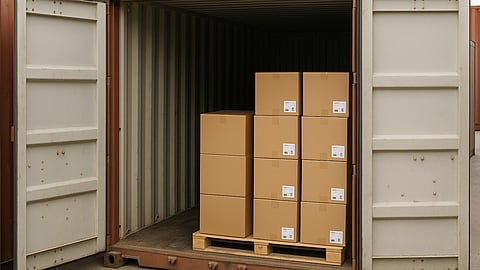Less Than Container Load or LCL Shipping: Advantages and Challenges
In international trade, container shipping is essential, but not every company can fill a full 20- or 40-foot container. Less Than Container Load (LCL) shipping solves this problem by allowing multiple shippers to share space in one container and pay only for the portion they use.
For small-to-medium enterprises (SMEs), startups, or businesses testing new markets, LCL shipping offers a more flexible and affordable way to move goods. Still, it comes with trade-offs. Let’s break down the main advantages and challenges of LCL shipping so businesses can decide if it’s the right fit.
Advantages of LCL Shipping
Lower LCL Shipping Costs for Small Loads
The most obvious benefit is cost. Businesses that don’t have enough cargo to fill a container can avoid paying for unused space. Instead, LCL freight rates are calculated based on cubic meters or weight. For companies shipping small batches, this is far more affordable than Full Container Load (FCL) shipping.
Flexibility in Shipping Frequency
With LCL, shippers don’t need to wait until they accumulate enough stock to fill a container. This enables more frequent shipments and leaner inventory management. For businesses with fast-moving or seasonal products, this flexibility is critical to staying competitive.
Easier Market Entry
For exporters testing new regions, LCL shipping is a low-risk option. Instead of committing to a full container, businesses can send smaller quantities to gauge demand. This makes LCL an effective strategy for market expansion without heavy upfront costs.
Access to Freight Forwarder Networks
Most freight forwarders manage LCL consolidation. By shipping LCL, small businesses benefit from professional logistics services, established carrier relationships, and assistance with customs documentation—all of which reduce the complexity of international shipping.
Insight: eCommerce and the Evolution of Retail Logistics
Challenges of LCL Shipping
Longer Transit Times
Because LCL containers carry goods from multiple shippers, freight forwarders need extra time to consolidate shipments before departure and deconsolidate them on arrival. This means transit times are often longer compared to FCL shipping. Businesses with urgent delivery schedules may find this delay problematic.
Higher Risk of Damage or Loss
Cargo in LCL shipping is handled more frequently, increasing the chance of damage. Since multiple types of goods may be packed into one container, there’s also a higher risk of incompatibility (e.g., fragile items packed near heavy industrial goods). Insurance can help cover costs, but disruptions can still hurt supply chains.
Complications in Customs Clearance
With LCL shipments, if one shipper’s cargo faces a customs issue, the entire container can be delayed. This lack of independence can create bottlenecks, especially in countries with strict or slow customs processes.
Higher Handling Costs per Unit
Although LCL is cheaper for small volumes, the per-unit cost can be higher compared to FCL. Consolidation, deconsolidation, and extra handling fees add up. Businesses consistently shipping close to a full container may save more by switching to FCL.
Less Control Over Logistics
Since LCL relies heavily on freight forwarders, shippers have limited control over schedules, routes, and handling. For businesses with strict supply chain requirements, this lack of visibility can be a drawback.
LCL vs FCL: Which to Choose?
When comparing LCL vs FCL, the decision depends on priorities. If speed, control, and shipment integrity are most important, FCL shipping is usually the better option. But if cost savings, flexibility, and market testing matter more, LCL shipping is a powerful alternative.
Businesses that understand the trade-offs and work with reliable freight forwarders can minimize risks and maximize the benefits of LCL shipping.
LCL shipping opens the door to international trade for companies of all sizes, offering cost savings, flexibility, and easier access to global markets. However, the downsides - longer transit times, higher handling risks, and customs delays - require careful consideration.
For smaller shipments, startups, and businesses expanding globally, LCL freight shipping is a smart, cost-effective logistics solution. But once shipment volumes grow, switching to FCL often becomes the more efficient and reliable choice.
Read More: From Dubai to Memphis: How Smart Airport Infrastructure Powers Global Trade


